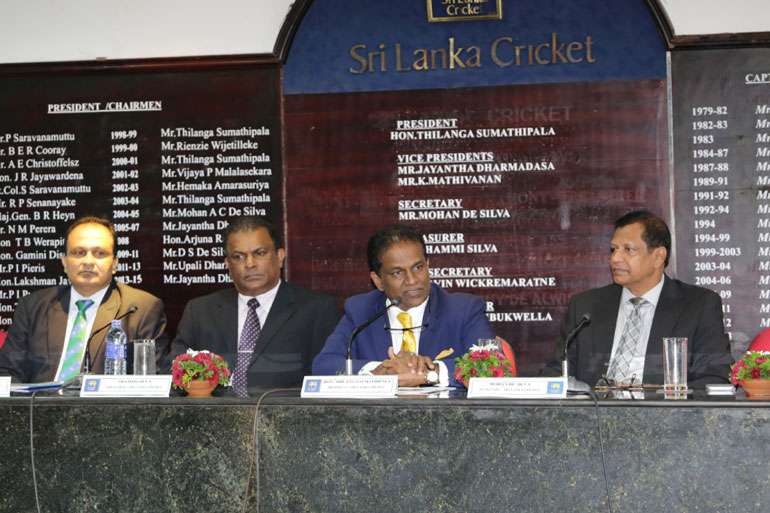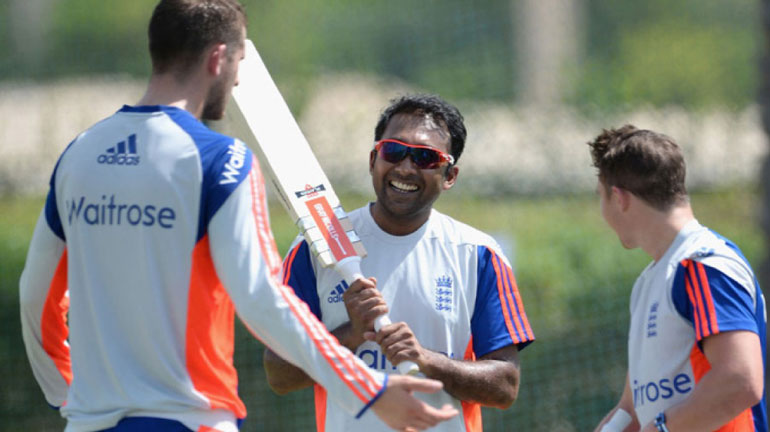Tuesday Feb 17, 2026
Tuesday Feb 17, 2026
Saturday, 27 February 2016 00:00 - - {{hitsCtrl.values.hits}}

 Mahela Jayawardene had previously worked with England during their tour to the UAE last year - Getty Images
Mahela Jayawardene had previously worked with England during their tour to the UAE last year - Getty Images
By Madushka Balasuriya
Sri Lankan cricketers will not be able to take up coaching or consultancy roles with any other national side for a period of 12-24 months after retiring, if a proposal by Sri Lanka Cricket President Thilanga Sumathipala comes into effect.
Speaking at media briefing yesterday Sumathipala revealed that SLC were considering putting in non-compete clauses in player contracts, bringing up Mahela Jayawardene’s batting consultancy role for England as an example, claiming it was unethical that he took on the role so quickly after retiring, despite Jayawardene never having been offered a job by SLC.
“I don’t think this is a matter of contract. You captained Sri Lanka, played for your country, you leave the game, and then after a few months you represent another country and advise against your own nation? I’m talking here about the ethics of cricket,” explained Sumathipala at a media briefing organised to review the progress the new board had made since coming into power.
“We’re going to bring some controls. All the contracted players who are playing, they should have a at least 12 months - ideally 24 months - not representing any other country as an advisor or coach,” he added.
Sumathipala added that he it was “ethically not correct” for someone with intimate knowledge of a team’s strengths, weaknesses and plans, to help a competitor, one that is due to play Sri Lanka in the group stages of the World T20.
“I’m very sad, that with a World Cup coming up, you have player who has just left your national side join a competing nation and advise them.
“From now onwards no cricketer can leave and advise or work as a coach or assistant for another national side without there being a minimum cooling off period.”
Legal ramifications
Despite Sumathipala’s indignation at the possible sharing of inside information no details were furnished in respect to what action would be taken against players who violate the “cooling off period,” and despite his assertion that any such contractual clause would be fine from a legal standpoint, a lawyer familiar with contract law contested its validity.
“Sri Lankan contract law is governed by English Law. In Contract law there are contracts which are considered to be against public policy. Unlawfully restraining trade or employment would fall into this category,” he explained.
As such, he continued, there are several issues that would arise were SLC to implement such a contract:
“SLC will be restraining a person’s employment when that person is no longer employed by that company, nor it is that employment in the same field.
“Then there is the issue of unfair bargaining positions. If the players don’t agree to this clause does that mean they won’t get contracts. Is that an equal bargaining position?
“Finally there is the actual attempt of trying to stop a person’s employment whilst not remunerating him for lost employment. Right to employment is also a fundamental right. As SLC does have government oversight , this decision can even be challenged under a FR application.”